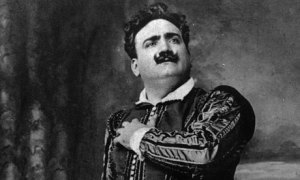Oberto Conference 2015: Opera and Celebrity
Oxford Brookes University
Tuesday 8 September 2015
From the castrati of the 18th century and the prima donnas of the 19th century to the star singers of the present day, opera has long been associated with celebrity culture. Although operatic celebrities were never just famous for being famous, many performers – and more recently also some composers and directors – were fêted or notorious for more than their artistic achievements. From the earliest days of public opera, accounts of singers’ love affairs, spectacular feuds or personal antics were eagerly lapped up by audiences that looked to the opera for entertainment both on and off the stage. The advent of mass media culture in the later 19th century, however, offered singers and their agents new and powerful promotional tools, which many embraced with enthusiasm. Singers such as Melba and Caruso commanded extravagant fees and were treated like royalty. The opera house also acted as a magnet for celebrities from other walks of life, seeking to enhance their public image via the cultural cachet and glamour factor of opera. During the 20th century audiences and critics became somewhat less tolerant of earlier models of operatic ‘star behaviour’ and in the present day operatic stars might appear to have been comprehensively eclipsed by new and very different types of celebrity. However, studies such as Claudio E. Benzecry’s The Opera Fanatic have demonstrated that contemporary opera enthusiasts are as obsessive about individual singers as they ever were.
This conference, organised by the OBERTO opera research unit at Oxford Brookes University, aims to examine the ways in which operatic celebrities across the centuries have promoted themselves and been received by audiences, as well as exploring the impact stars have had upon operatic works and productions. The conference will include a special session on opera and celebrity during the interwar period, associated with Dr Alexandra Wilson’s British Academy-sponsored project on British operatic culture in the 1920s. However, the conference as a whole will engage with all historical periods and a wide array of geographical areas. We also invite contributions on the place of operatic stardom within changing models of celebrity culture in the early twenty-first century.
Topics might include (but are not restricted to):
- The star as god vs. the star as commodity
- Celebrity lifestyles and morality
- The impact of the ‘star’ on operatic works and productions
- Celebrity and life writing
- Opera singers in films
- Celebrity and image / portraiture
- The travelling / trans-Atlantic celebrity
- Operatic fandom past and present
- Critical responses to operatic stars
- Celebrity appropriation of the operatic environment
- Operatic celebrity during the interwar period
We invite proposals for 20-minute presentations, panel discussions and alternative format sessions such as lecture-recitals or poster presentations. We welcome contributions not only from academics but also from performers and opera industry or media professionals. Past OBERTO conferences have facilitated lively debates between academics, practitioners and members of the general public, and we would like to continue this tradition.
Please send abstracts of no more than 250 words to Dr Alexandra Wilson at alexandra.wilson@brookes.ac.uk by Monday, 1 June 2015.
The conference will take place at Oxford Brookes University on Tuesday, 8 September 2015.
OBERTO holds an annual conference every September. For details and reports of previous conferences, please see here.





